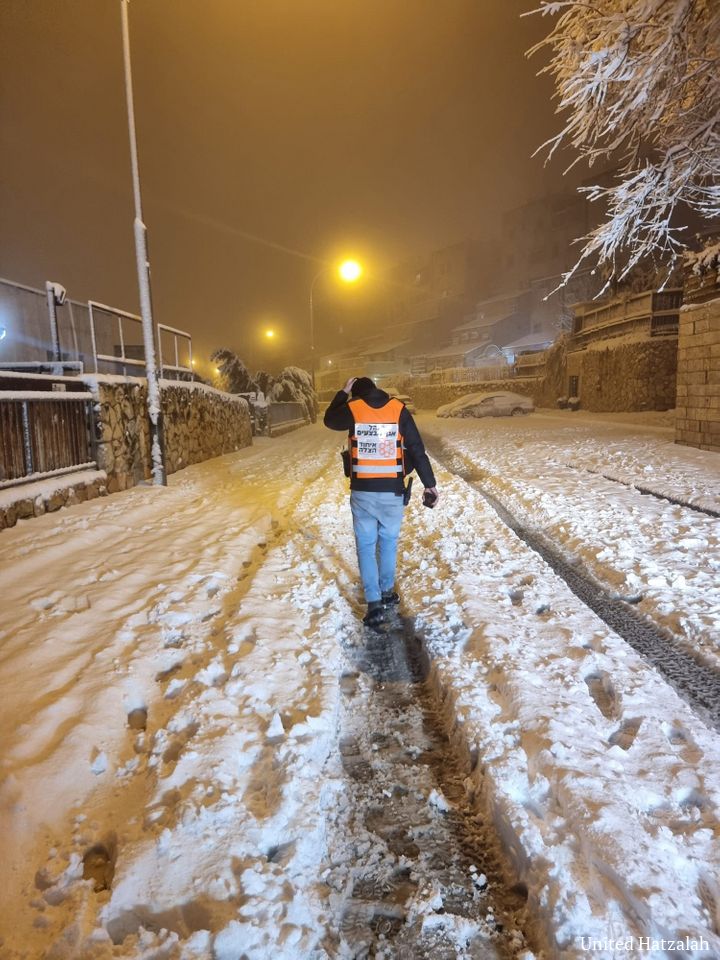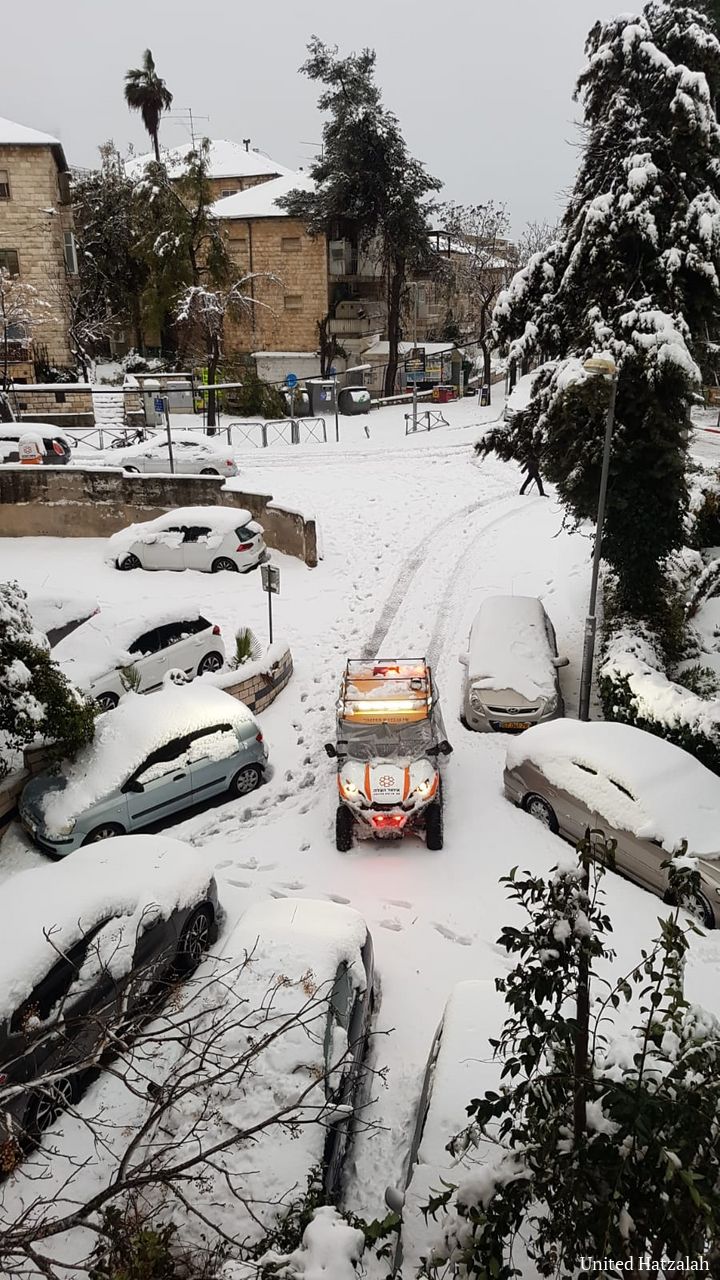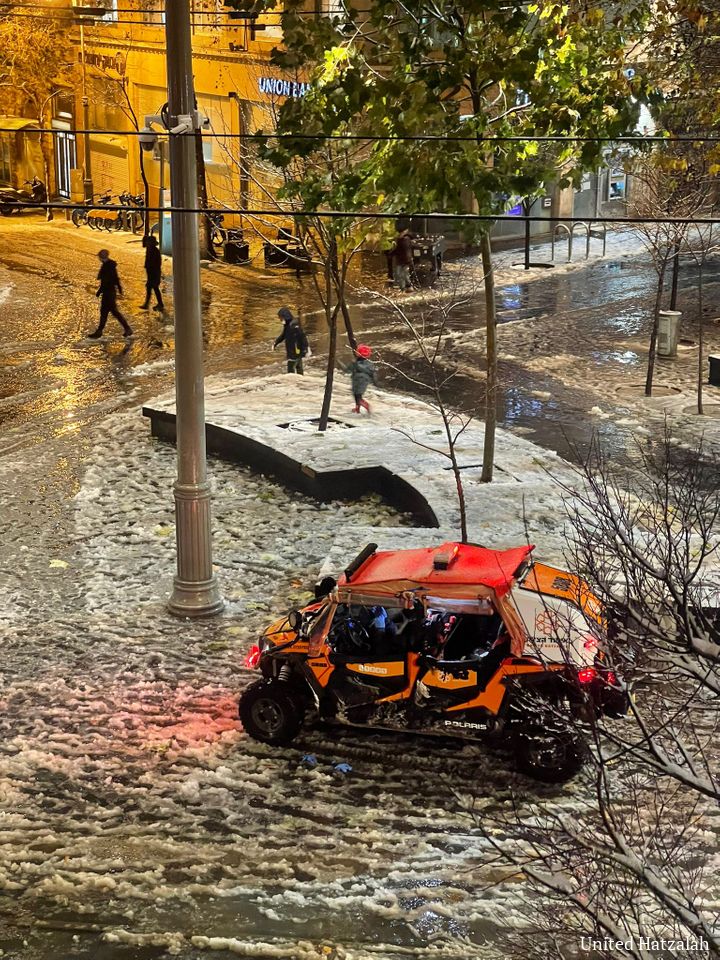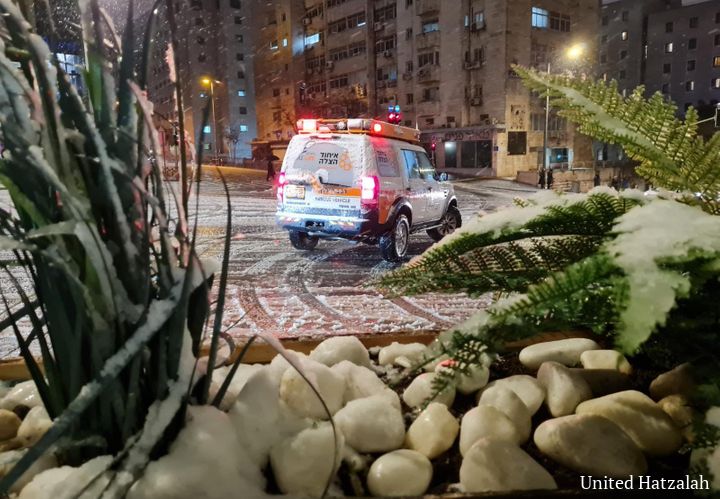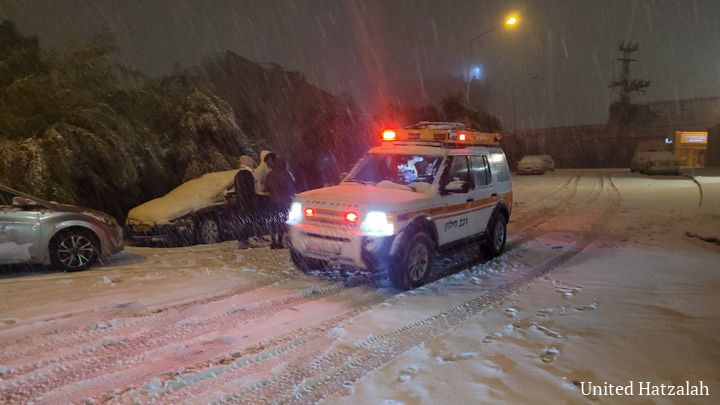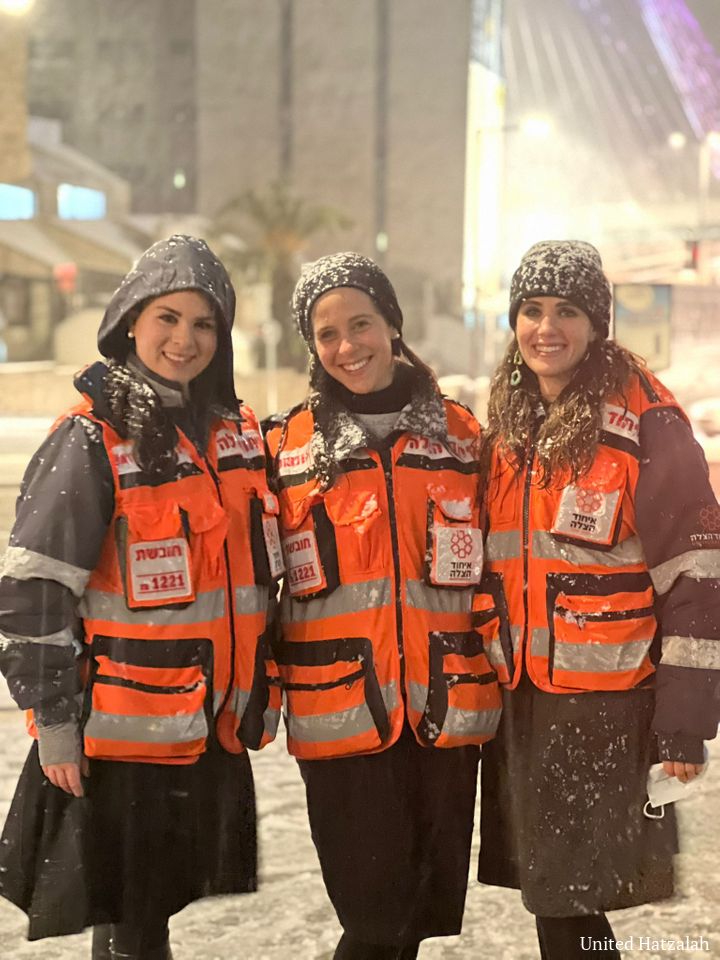

Posted on 02/06/23
United Hatzalah has raised its alert level ahead of the onset of winter storm Barbara. “We have raised the alert level of our volunteers across the country and sent additional resources and vehicles to the north and central mountain regions. We are fully prepared to continue our lifesaving activities across the country in spite of the difficult weather conditions expected in the coming days,” said the President and Founder of the organization Eli Beer.
If traffic is disrupted due to significant snowfalls, snow chains and various off-road vehicles such as ATVs and jeeps will be used in order to provide medical assistance and rescue people trapped in areas that are difficult to reach by regular emergency vehicles due to the storm or complex terrain.
In addition, United Hatzalah’s Medical Division issued the following guidelines for public safety:
The extremities of the body (nose, ears, fingers, toes) should be properly covered whenever going outside in order to avoid frostbite. In addition to extremities frostbite can materialize close to a scar, and if left untreated can cause necrosis, i.e the death of the injured tissues.
Extreme cold can bring various other conditions. One of them is hypothermia, a drop in body temperature that can cause physical damage and even death. If 'hypothermia' is suspected, the patient should be moved to a warm and comfortable place and covered up until emergency services arrive.
Warm up and stretch your body at regular intervals, especially if you plan to exercise outdoors in cold temperatures.
It is advisable to wear layers and dress children in layers, especially when going outside. This is even more true if it is wet or in the case of snow.
Before taking a journey during inclement weather, make sure at least one person, friends, family, and neighbors, knows where you are going and when you are expected to arrive.
Do not place indoor heaters close to flammable objects such as furniture or drapes. Don’t leave heaters with exposed electrical elements on without supervision or on overnight.
It is advisable to keep warm blankets, water, a first aid kit, and a flashlight, in one’s car during a storm or cold weather.
Drink plenty of warm fluids but avoid alcohol.
Check on neighbors and loved ones to make sure that they are staying warm, this is especially true for the elderly.
